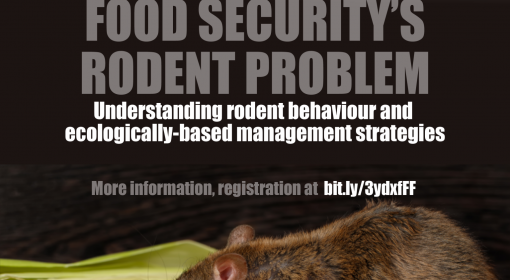Date
- April 8, 2020 (Wednesday)
Description
COVID-19 has underlined what are the ‘vital’ functions in society, the food chain being aa prime one. In rethinking what is basic the availability of food for everyone is a prime responsibility.
However, globally, upto 15% of standing crops or stored harvest is damaged by rodents. Moreover, the damage comes hardest to those that can ill-afford.In Sub-Saharan Africa crop loss goes up to 24%. In some regions of Ethiopia, rats and mice damage up to 46% of all the food grown. Besides, rodents cause injuries… and carry around 60 kinds of vector diseases such as the hanta virus.
There is a dire need to address this in a new world. At present available solutions include chemical rodenticides. Their biggest limitation is the often indiscriminate use and the harmful effect on chemical rodenticides on the environment, especially on non-target species. Moreover, immunity develops over time develops in the rodent population.
Other ‘circular’ options exist – based on a Ecologically-Based Rodent Management (EBRM), whereby at local level a large number of measures are undertaken: the use of predators, the control of habitats, selective trapping, and excluding rodents from food stocks. There is also a lot of promise in developing alternative rodenticides with biological ingredients. At the same time in most countries very little is happening rodent control.
This webinar documents the encouraging experience of Ecologically-Based Rodent Management in Ethiopia – where these measures were implemented with engagement of communities in watersheds in Amhara Region.
In this webinar, Luwieke Bosma from MetaMeta and Getachew Engdayehu from Amhara Bureau of Agriculture and Rural Development share their experiences implementing EBRM, and discuss its relevance to farmers elsewhere.
Related Resources
- Guideline: Effectively Controlling Rats with Ecological Methods- English and Amharic
- Video: ‘Ecologically-based Rodent Management’: https://thewaterchannel.tv/media-gallery/6795-ecologically-based-rodent-management


